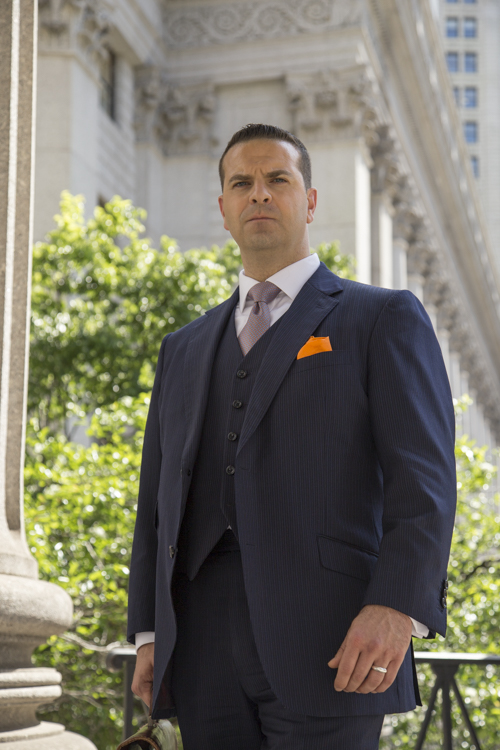Dayton Docket

Thursday December 6, 2018
Legal Matters of the Mind
By Lucas Schmitt
Shareef Rabaa was in a client’s living room when he was hit by what he calls the biggest revelation of his life.“You looked at pictures on the wall, it was the nicest family before the injury,” Rabaa says. “Things were different after her crash.”
The case was one Rabaa had been sent by another lawyer. From talking with the woman’s family, he knew there had to be more to the case than how it first appeared.
“Through meetings with her family, my own research and working with several doctors, we were able to find out that this woman had an undiagnosed brain injury,” Rabaa says.
That case sent Rabaa, who graduated from the University of Dayton School of Law in 2003, down a path to starting the Rabaa Law Firm in New York City, which specializes in brain and spinal injuries. He also represents retired National Football League players in concussion litigation.
“I started to learn the medicine at the most basic of levels, including a website called Neuroscience For Kids,” Rabaa says. “From there, I built my medical knowledge through book after book after book. As my knowledge grew, my success grew.”
Shareef’s work with brain injuries also includes a large amount of independent research in the medical field to better understand what causes different injuries. He’s even dissected human brains and done medical procedures on human cadavers. He regularly takes classes reserved for medical professionals.
“Once you learn what the science is, once you learn about what the medicine is and you learn about your client, then there’s no second thoughts about your case,” Rabaa says. “It’s full go into the fight.”
The medical field is something that Rabaa has been exposed to all of his life.
“My father was a hematologist/oncologist and one of my sisters is a molecular epidemiologist” Rabaa says.
His other sister, Ashley, was a UDSL graduate, who tragically passed away from a rare blood disease.
All of the experiences he’s had with his family, both good and bad, have helped him develop his own thirst for medical knowledge.
Rabaa also attributes a great deal of his success in his career to his time at UDSL.
He said that from the very beginning, he could tell the school had “good quality people”.
Ultimately, he chose UDSL in part because he was born and raised in Ohio and because of the reputation he felt the University of Dayton had from seeing friends who earned their undergraduate degree here.
“I met Professor [Blake] Watson when I came to visit, and he impressed me right away, and when I was a student there I loved Professor Watson and Professor [Cooley] Howarth,” Rabaa says. “Professor Howarth taught me about canons of construction in statutory language. I’ve won more arguments with those canons than I could ever imagine. They’re extremely powerful, and when you quote them, you’re speaking a learned judge’s language.”
According to Rabaa, there are two types of learning that students do in law school. The first is the learning that takes place when actually studying the law itself, where you learn why certain laws exist and how they are changed and followed. The second type of learning that takes place is learning how to successfully take the tests needed to become a lawyer, including in class finals as well as the bar exam.
“You have to prioritize your studies, you have to prioritize your rest and if you train yourself that way, then things aren’t too big for you,” Rabaa says. “When you start your professional career, it’s very similar. You have to learn what you need to do to be successful in your present position, but you must make extra time to learn new techniques and better yourself so you can keep moving forward.”
That drive is what propelled Rabaa to become an expert in brain injury law and it’s what continues to motivate him when he’s advocating for his clients in court.
“I like to run towards conflict, because conflict is the only way to grow,” Rabaa says. “In my business, trying cases is the quickest and fiercest form of conflict, and that’s what I love to do.”
Share
Topics
